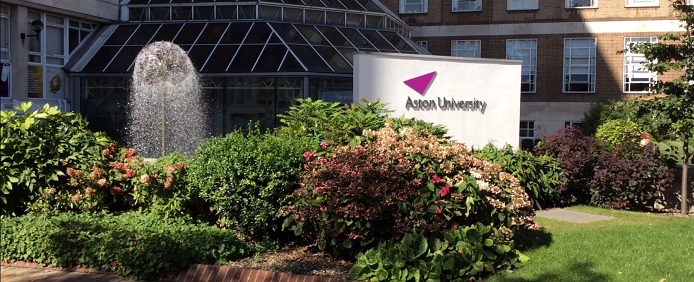
International opportunities have a big impact for students and academics at Aston University
Erasmus+ funding has created life-changing international opportunities for students at Aston University – many of whom otherwise would not have been given the chance to travel abroad.
The Birmingham-based higher education institute used student and staff mobility grants to offer overseas study and work placements to its learners, as well as academics.
“As a university we’re firm believers that students that undertake a placement year, wherever they go, whatever they do, it is of benefit,” said Wendy Yip, Director for International Development. “Especially if they go overseas, because they are going so far outside of their comfort zone.
“A large number of our undergraduate programmes feature compulsory placements. Many of those are compulsory international placements and Erasmus+ support has been vital. For us it’s a natural fit. It has been a fantastic vehicle for us to mobilise our international strategy.”
However, it is among those students who would not normally have access to such chances that the benefits were most keenly observed.
“We have a large number of widening participation students at Aston and to have Erasmus+ funding really does support these learners, who would probably struggle to even think about going overseas in any case,” said Wendy. “But with the sweetener of being told that they can have access to this funding and that they will be going with the support mechanisms that the university provides, it then becomes not so scary after all.
As a university we’re firm believers that students that undertake a placement year, wherever they go, whatever they do, it is of benefit.
“For these students we definitely see that the experience is life-changing. It’s really hard to articulate, it’s only really when you meet the students and you see things like their confidence, the way that they carry themselves, that they’re much more self-assured.
“Academically they’re a lot more confident too, because they know that they’ve been able to cope with studying in a different environment, or if they’ve gone into a work internship they’ve been able to deal with people who are not from the university environment, not from a family situation.
“They really are meeting and dealing with people from lots of walks of life and different cultures. That’s something you can’t put on paper. It’s wonderful to see.”
Extending the reach of overseas opportunities
International Credit Mobility (ICM) funding allowed UK universities to extend the reach of these overseas opportunities beyond Erasmus+ programme countries to other parts of Europe and the world and had been key to developing Aston’s international offering.
“ICM provides another pathway to accessing funds and we use it very much to support our academics and get them to engage on an international basis, to start dialogues and to start research projects,” said Wendy.
Dr Sue Garton is Associate Dean for External Relations and a reader in applied linguistics at Aston. She was involved in a project aimed at improving provision of modern languages teaching which was funded by ICM and involved partners in Ukraine, Russia and Uzbekistan.
Staff visited and hosted their counterparts from each country and students from the other nations joined Aston’s MA TESOL (Teaching English to Speakers of Other Languages) course for a term.
“For this project International Credit Mobility has been absolutely fundamental,” said Dr Garton. “It’s enhanced Aston’s reputation in all three countries.
“For example, Uzbekistan isn’t a country that Aston had particularly engaged with up until now but we now have funded students coming from there completely independently of the project. Through the contacts and through the experiences they now know that Aston is a trusted partner.
“ICM has enabled Aston University as a whole to extend the list of countries that we engage and interact with. It is an opportunity for people, colleagues and students, with similar interests to come together to share experiences and to learn from each other.”
